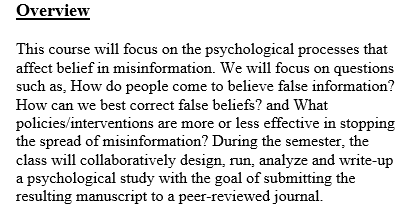
#icps23be teaching institute starting now - tweet thread incoming... 
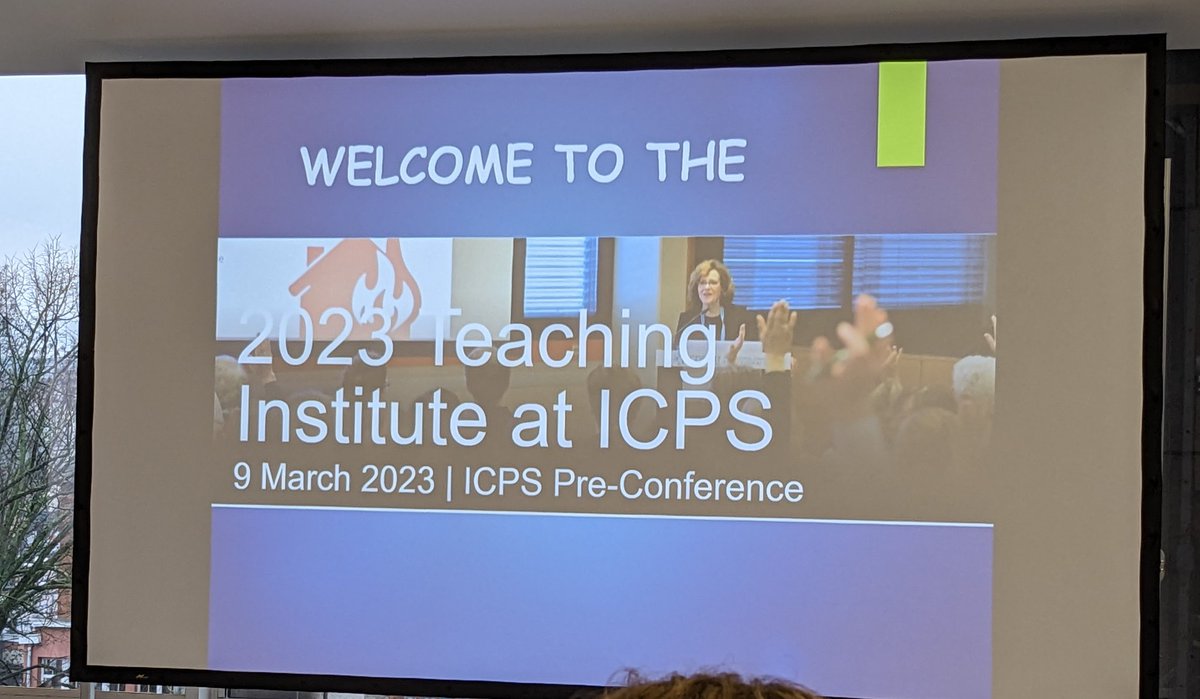
First up is Manu Kapur talking about productive failure.
Former college math instructor - noticed students often didn't learn even after very good and clear lectures
#icps23be

Former college math instructor - noticed students often didn't learn even after very good and clear lectures
#icps23be


Instead focus on productive failure - problems carefully designed to activate existing knowledge (e.g. mean, range) but not solvable using those skills. After 40-45 min of working in groups students create creative mathematical solutions - but not "correct" answer #icps23be 

This productive failure (followed by instruction) leads to higher conceptual understanding and transfer as compared to direct instruction (followed by problem solving). #icps23be 

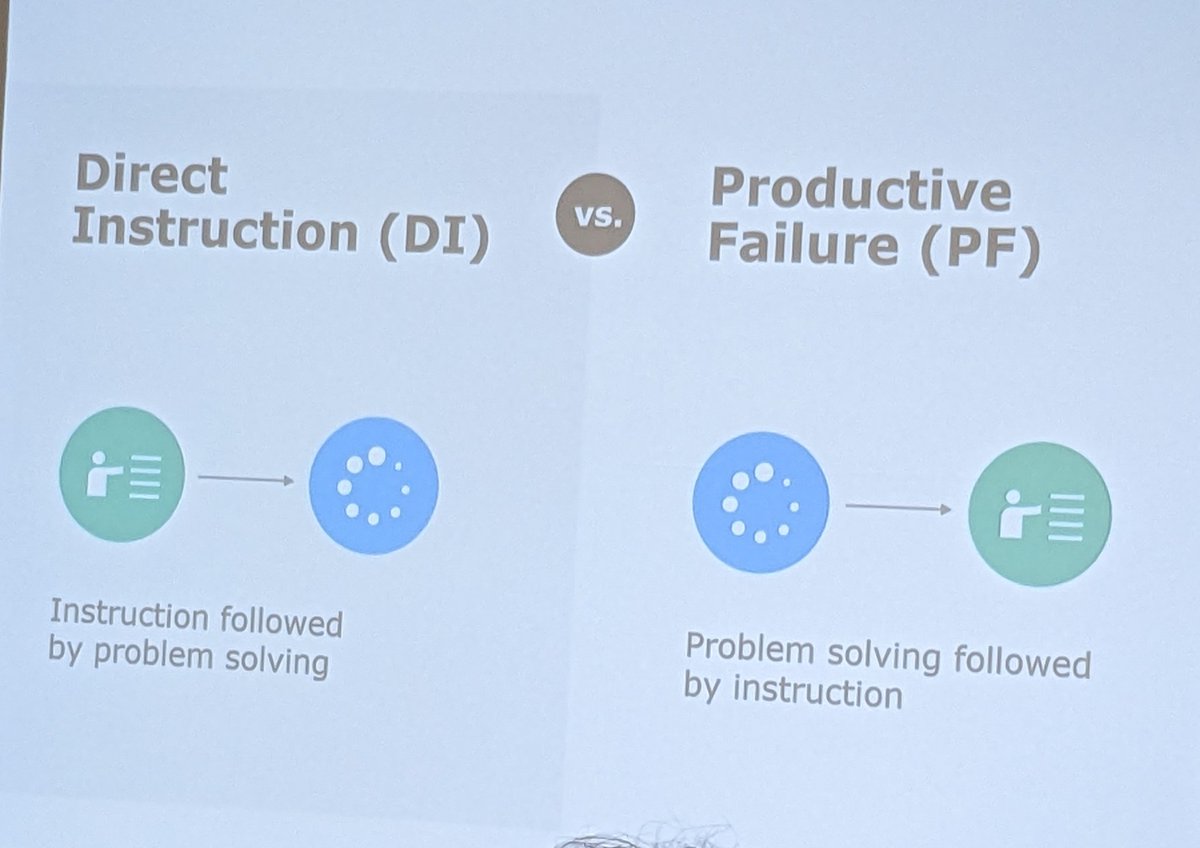

Implemented a few carefully designed productive failure exercises for college linear algebra course. Increased passing rate from 55% to 75% #icps23be 
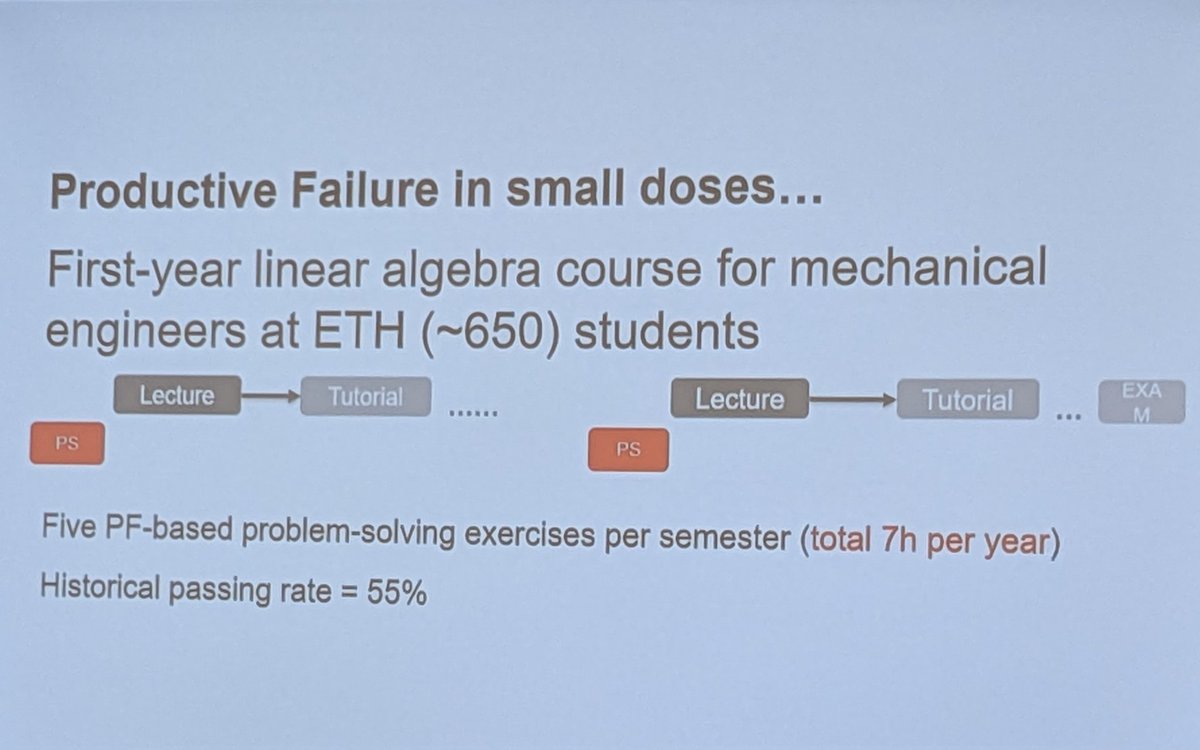
Huge problem in schooling according to Manu Kapur - unproductive success. Students who succeeded on the given task but don't actually learn anything. Simple problem solving after direct instruction often leads to unproductive success #icps23be
Next up was me - talking about "Best practices for helping students identify misinformation and correct misconceptions". Thanks to my twitter peeps for providing examples of psychology misinfo on TikTok. Look at everyone brainstorming ways to deal with psych misinfo ❤️ #icsp23be 

We talked about research from @Sander_vdLinden, @lluaces, @samwineburg, @STWorg, @GaleSinatra, @joelbreakstone, @ftripodi and others. Focusing on the prevalence of false psych info, students poor digital literacy skills and ways to combat misinfo. #icps23be
And I conclude that professional orgs like @PsychScience should be actively creating and spreading correct psychology information on social media. @Dr_Inna & @steverathje2 do amazing work but we can't count on ppl doing unpaid and unrewarded labor. #icps23be #CallToAction.
After lunch, @jwpennebaker talking about "Education at scale: Rethinking undergraduate education" Large 500+ student intro psych course. Redesign- lecture first then relevant readings, daily quizzes with feedback covering new and old content #icps23be 
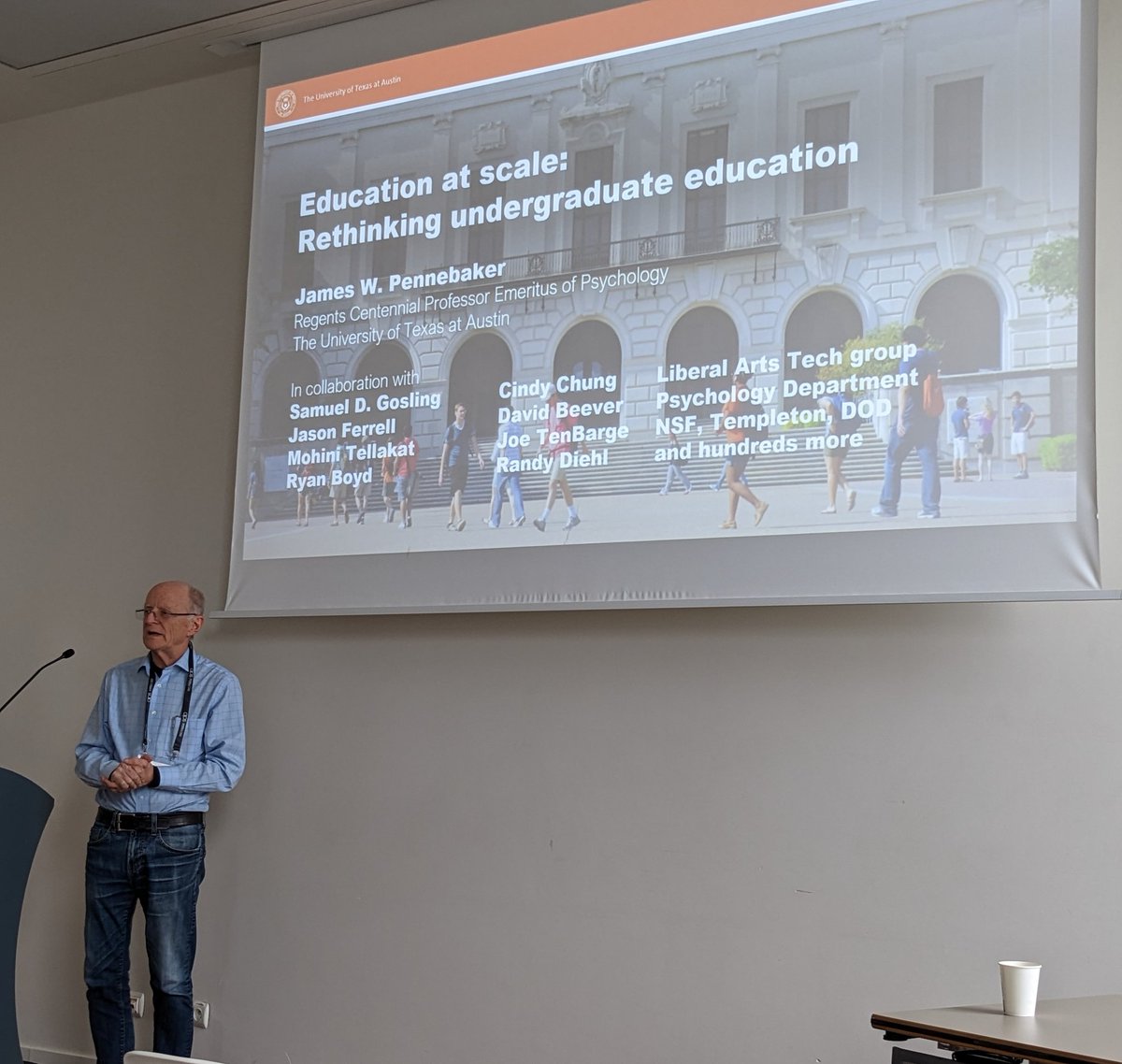
Eventually filmed lectures for online course -modeled after late night tv (Jon Stewart) w small studio audience, 5 min segments & interaction among students.
Compared to earlier years ⬆️ attendance bc of quizzes, ⬆️ grades (esp for students w lower parental education) #icps23be
Compared to earlier years ⬆️ attendance bc of quizzes, ⬆️ grades (esp for students w lower parental education) #icps23be

Also improved grades in non-psych courses that semester and all courses the next semester. (Again esp for lower ses). #icps23be 

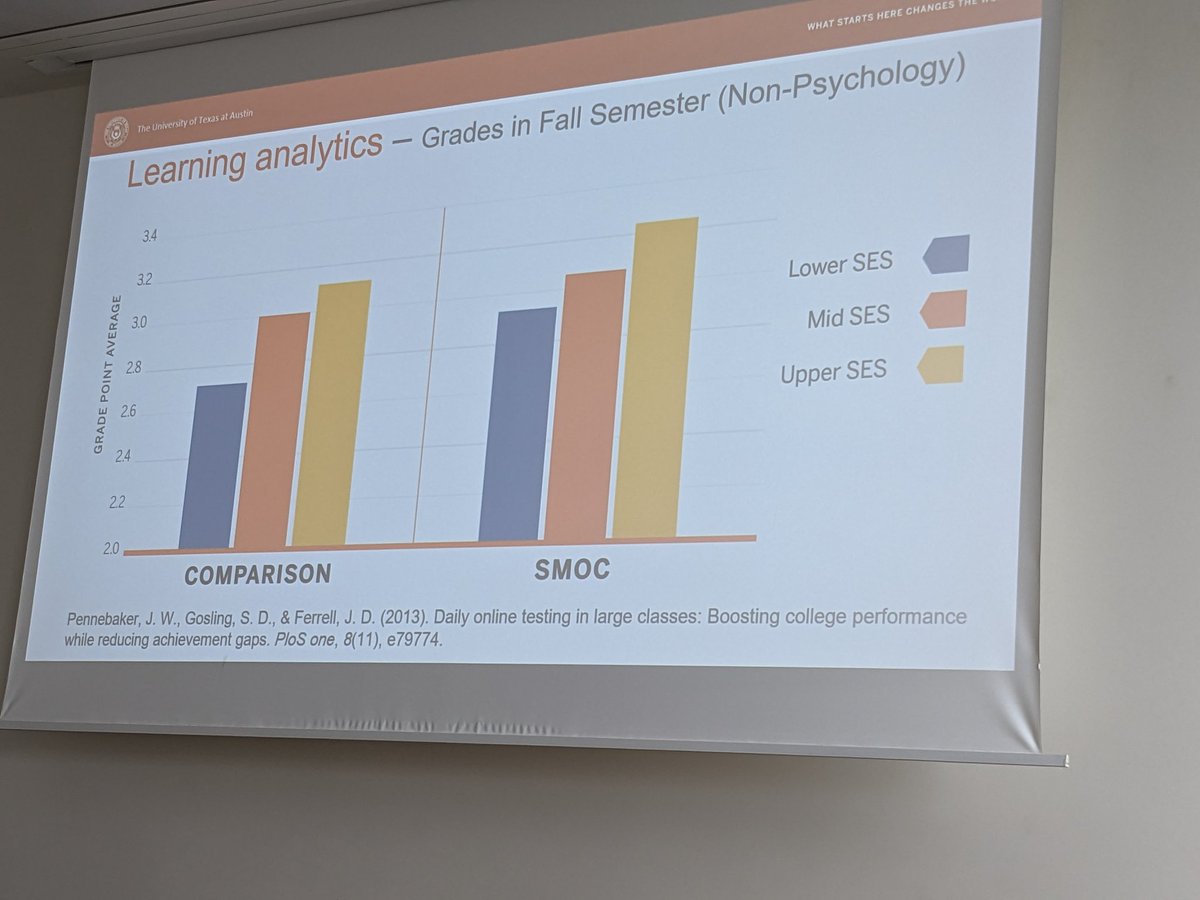

Key features: Power of repeated testing, active engagement of students, transparency (large quiz bank of all past questions)
Can account for >25% of variance in grades by just how often they click on the class content (studying helps!) #icps23be
Can account for >25% of variance in grades by just how often they click on the class content (studying helps!) #icps23be
Final speaker - Bob Uttl "Why student evaluations of teaching are higher education's highway to hell"
How do we measure something as fuzzy and hard to measure as "good teaching"? Common solution - use student evaluations #icps23be
How do we measure something as fuzzy and hard to measure as "good teaching"? Common solution - use student evaluations #icps23be

Even if evals correlation with good teaching is .43 (prior meta-analysis) you'll miss 20% of good teachers. But in actuality correlation is 0 once you account for small samples.
No relation between evals and student learning.
#icps23be
No relation between evals and student learning.
#icps23be
Evals are affected by student prior interest in course, type of course (quant/not), size of course (decreases up to 30 then flat), teacher appearance and accent, etc...
None of which are under teacher's control or are indications of the quality of their teaching
#icps23be
None of which are under teacher's control or are indications of the quality of their teaching
#icps23be
Bob Uttl - student evaluations "are irredeemable, regardless of what they measure, for evaluation of faculty" #icps23be 
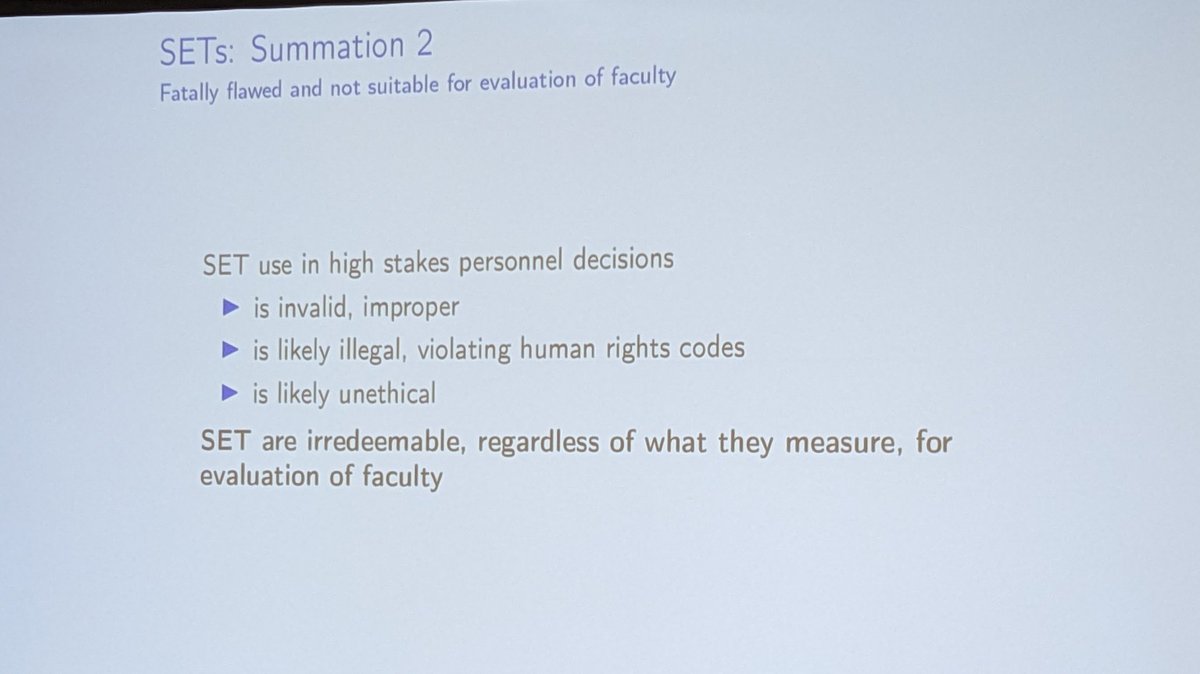
• • •
Missing some Tweet in this thread? You can try to
force a refresh




